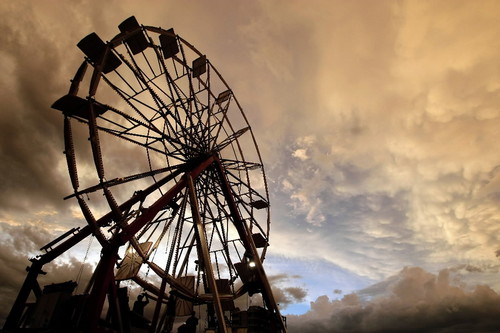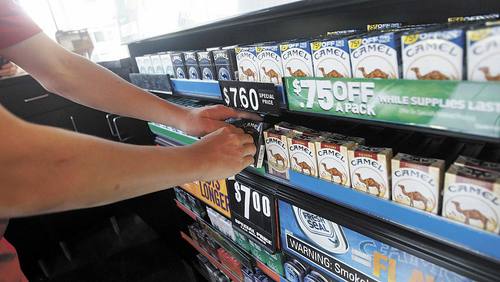Increases in tobacco tax opposed by businesses
By Mike Nowatzki, Forum Communications
BISMARCK — Retailers and distributors urged state lawmakers Tuesday to snuff out a bill that would raise North Dakota’s tobacco taxes for the first time in 22 years, warning it could have a “devastating” impact on businesses, spur cigarette smuggling and unfairly burden smokers who can least afford it.
Backers of the $1.10-per-pack increase in House Bill 1421 said it will put North Dakota on par with the national average, save millions in avoided health care costs, prevent young people from starting smoking and give adults the incentive they need to quit.
“I look at it as a silent intervention,” Rep. Jon Nelson, R-Rugby, the bill’s prime sponsor, told the House Finance and Taxation Committee during a standing-room-only hearing at the Capitol.
The president of the North Dakota Petroleum Marketers Association, which lobbied successfully against a similar bill last session, said cigarettes are the top revenue generator for convenience stores, accounting for 32 percent of in-store sales nationwide.
Raising the tax could drive smokers across state lines or to the Internet or American Indian reservations, where tobacco isn’t taxed, Mike Rud said.
“With the retail sector of the state’s economy hitting on all cylinders, why would any legislator support throwing a wrench into the economic engine?” he said.
Bill supporters lamented that North Dakota’s current excise tax of 44 cents per pack is the 46th lowest in the nation and hasn’t been raised since 1993.
The bipartisan bill would boost the tax to $1.54 per pack, which is the national average and 1 cent higher than South Dakota’s tax. Taxes would increase from $0.60 to $2.72 per ounce on snuff, and from $0.16 to $0.73 per ounce on chewing tobacco.
Rep. Kathy Hogan, D-Fargo, a bill co-sponsor, said the proposed tax was intentionally kept at or below the tax leves of surrounding states so as not to disadvantage North Dakota businesses. Montana’s tax is $1.70 per pack, while Minnesota’s is $2.90, seventh highest among states.
Committee member Rep. Wayne Trottier, R-Northwood, asked Nelson if the tax hike would end up “on the backs of children” of low-income parents who choose to keep smoking. Nelson and others acknowledged that statistics show smoking rates are higher among the less affluent, but he said the higher tax will hopefully make them think twice about smoking.
“If children don’t rank higher than a pack of cigarettes or a pouch of Copenhagen, for example, then what have we become?” he said.
The tax hike would boost state revenue by an estimated $138.6 million in the 2015-17 biennium, assuming an 11 percent drop in cigarette consumption and 15 percent drop in use of other tobacco products, according to the bill’s fiscal note. North Dakota collected roughly $31 million from cigarette and tobacco taxes last year, up from $21 million in 2004.
Sixty percent of the new tax revenue would go into the state’s Community Health Trust. Counties and cities would receive 25 percent and 15 percent, respectively, for local public health and safety programs.
Dr. Eric Johnson, president of Tobacco Free North Dakota, said North Dakota is a leader in tobacco prevention and control programs and has a strong smoke-free indoor air law.
“That’s really the hole in our preventive strategy right now,” he said of the tax.
Paul Mutch, owner of Mutch Oil Co. in Larimore, about 25 miles west of Grand Forks, said it’s “unbelievable” that a state in North Dakota’s financial condition would consider raising taxes on anything. He said a tobacco tax would hit the middle class the hardest.
“The lady on Social Security who comes in and buys two cartons per week as she carries an oxygen tank is not going to quit smoking because they now cost more,” he said in written testimony.
A companion bill, Senate Bill 2322, would raise the cigarette tax to $2 per pack. That bill has its first hearing Wednesday.
http://www.jamestownsun.com/news/state/3671277-increases-tobacco-tax-opposed-businesses


